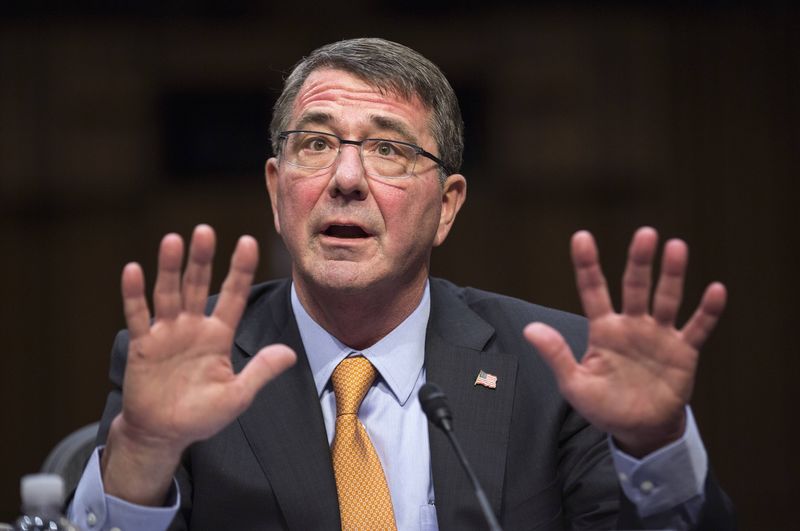By David Alexander
WASHINGTON (Reuters) - Defense Secretary Ash Carter urged lawmakers on Wednesday to endorse plans for a Pentagon base budget that exceeds federal spending caps by $35 billion, saying another year of cuts would leave the military unable to execute U.S. defense strategy.
Carter, speaking to the defense appropriations panel in the House of Representatives, said the president's request for a $534 billion Pentagon base budget for 2016 would help the military begin to recover after 14 years of war and enable it to invest in a new generation of weapons for the future.
But the Republican chairman of the subcommittee warned that his panel was "staring down the barrel of renewed tight budget caps" and had no choice but to comply with current law, which would slash billions from the defense request.
"Unless and until the law is changed, this committee has no choice but to draft our bill to comply with the ... caps, at least $37 billion below the president's budget request," Representative Rodney Frelinghuysen told Carter and Army General Martin Dempsey, the chairman of the Joint Chiefs of Staff.
A 2011 law required the Pentagon to cut nearly $1 trillion in projected defense spending over a decade. The cuts followed a decade of war and began as the United States was still trying to wind down the conflict in Afghanistan.
Since then, tensions with Russia over the Ukraine crisis and the seizure of parts of Syria and Iraq by Islamic State militants have forced the U.S. military to continue a high pace of operations.
Carter said more cuts would force the administration to take a look at its strategy, which calls for a U.S. military capable of engaging in one major conflict while holding a rival at bay in a second.
"The time for squeezing, squeezing, squeezing is over," Carter told the panel. "We're going to need to look at our fundamental defense strategy and our national security strategy and ask ourselves difficult questions about what we can't do or can't do to the extent this country has become accustomed."
Dempsey said under a revised strategy the military would probably have to give up some of its ability to deal with multiple threats at the same time.

"The first thing that begins to erode and disappear is simultaneity," he said. "We're going to be less likely to be able to do more than one major thing at a time."